An Origin Story
Our crystals come from all over the world. We've spent years fostering relationships with people - both domestic and abroad - to bring you only authentic and beautiful crystals, minerals, and stones.
We do our best to provide you information on each crystal's origin story. Whether it's the exact mine, or lost to the mists of time.
The majority of our crystals are hand selected. We travel to gem shows and inspect each stone. We scour estate sales, auction houses, and antique dealers for old stock specimens. And we go through warehouses, factories, and miner's stockpiles virtually. A few we even mined ourselves.
Each piece beautifully unique and from the Earth, never to be exactly replicated again.
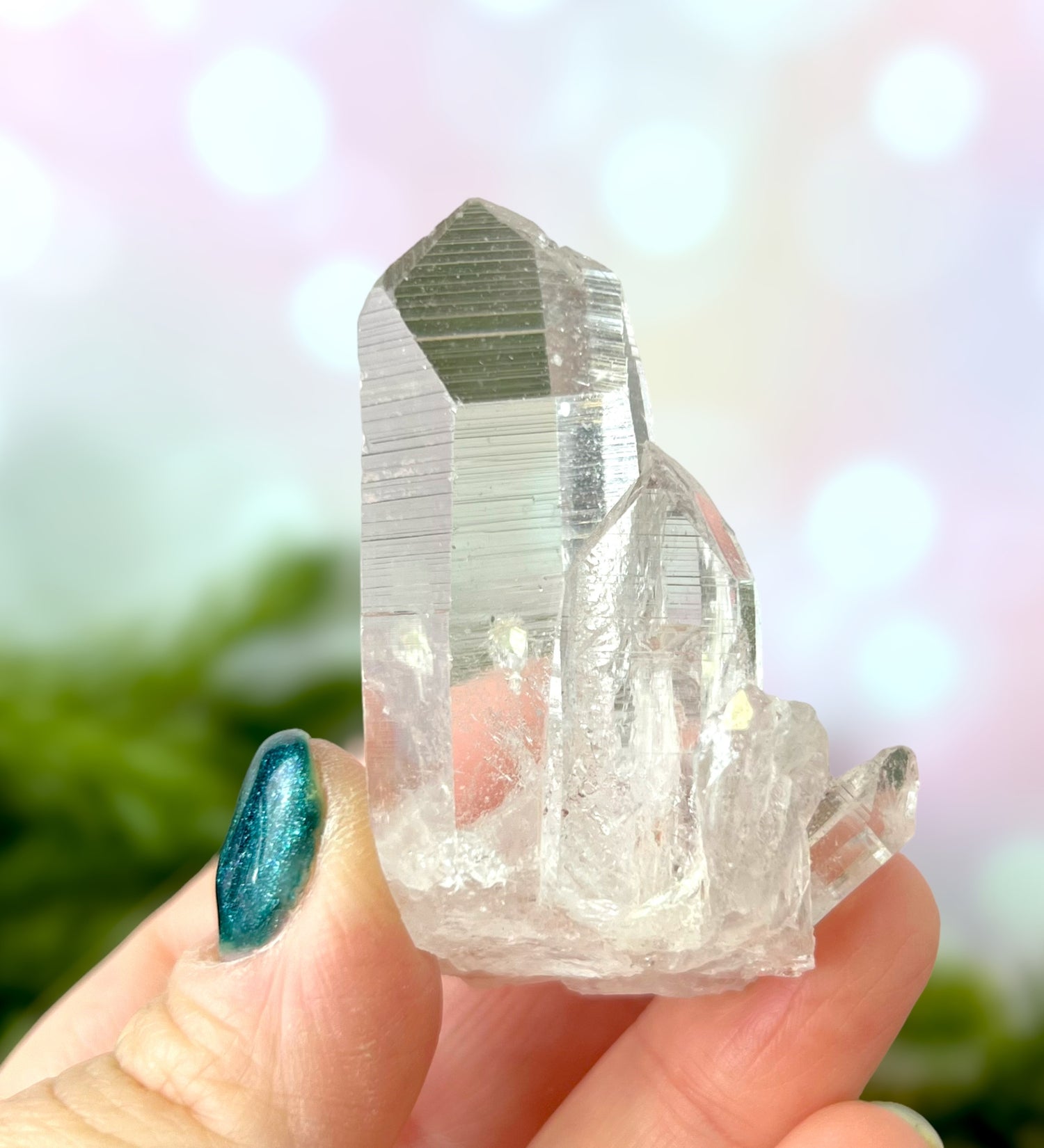
Perfectly Imperfect
Crystals are a natural creation of our Earth. They are a precious, non-renewable resource.
Our carved and polished crystals are created by skilled artisans. They bear the marks of human handiwork and tools.
We've chosen to honor these facts by not discarding crystals just because they aren't perfect. Their natural flaws and blemishes are what makes them unique, and connects us all to each other.
That being said, we do our best to point out these imperfections in our product descriptions.
Treatment Disclosures
Lab grown. Dyed. Irradiated. Smelted. There's so many treatments done to crystals, it's hard to take in.
That's why we do it for you. We believe it's our job as crystal sellers to know our product, and do our best to share that knowledge with you.
We take pride in being truthful and transparent with you. We spend countless hours educating ourselves not only about the science of minerals, but also the crystal industry as a whole.
About industry standard treatments
There are some treatments and enhancements that are known as industry standards.
That means they are basically the default way some crystals are processed, and have been for ages. It's difficult to find pieces on the market that HAVEN'T undergone these treatmenets. Some examples are stabilizing Turquoise, or heat treating Carnelian.
These standard treatments may not be disclosed in our specific product descriptions. But we're working on other ways to share this information with you in the near future!
We are still learning, too
We're constantly learning and growing, right alongside you. We aren't perfect, and we'll make mistakes. But we always acknowledge them, and do our best to address them.
If you think we've gotten something wrong, please tell us! It's the best way we can learn and serve you better.
A Note On
Ethical Sourcing
Ethically sourced crystals are a marketing gimmick. Here's why, and where we stand on the topic
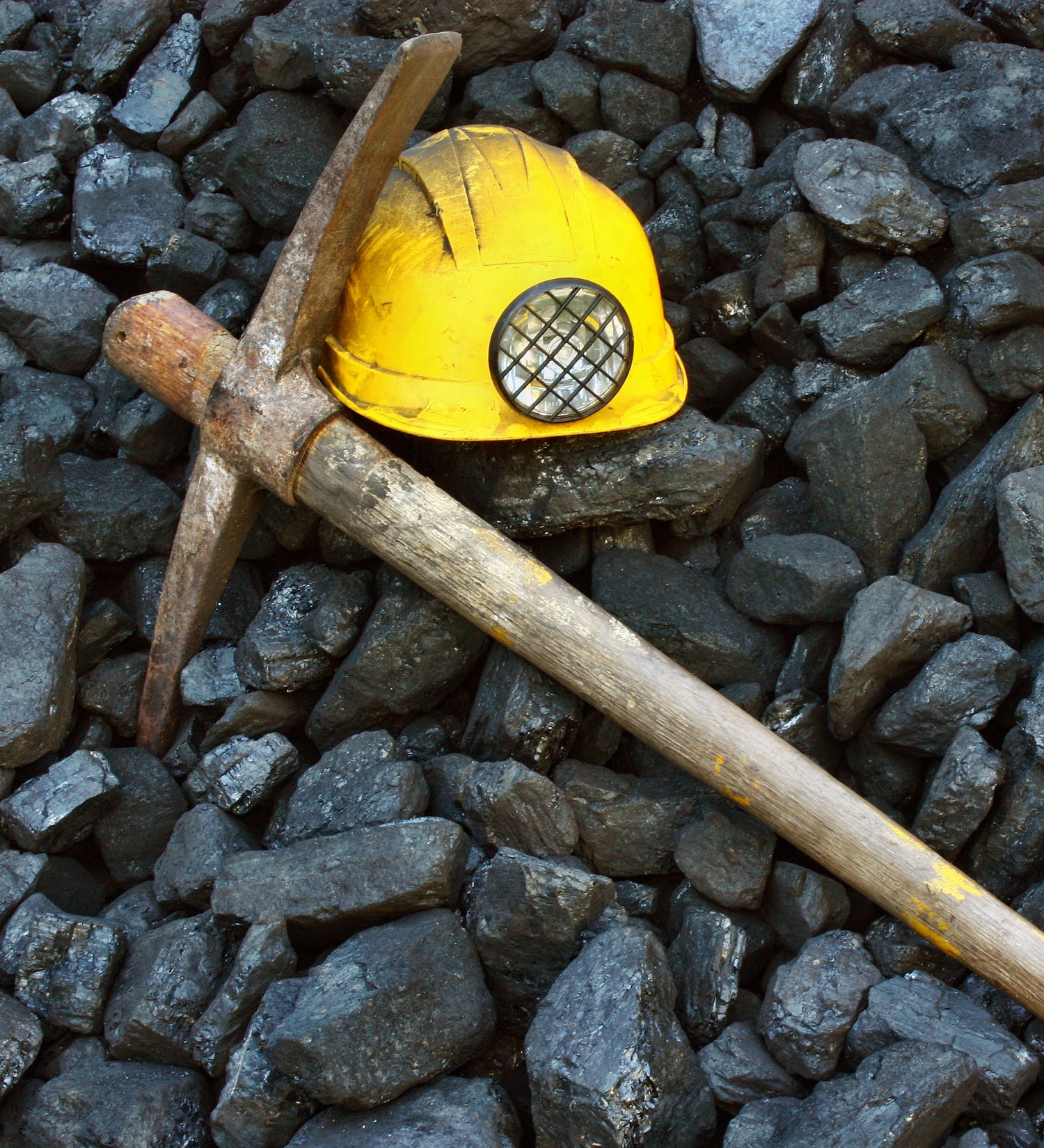
What even is Ethical Sourcing?
No Standard Meaning
There's no single definition of what's ethical or not in the crystal business.
Ethically sourced is an unregulated term. Store owners get to define it for themselves, and often don't share what they actually mean with you.
Does it mean no strip mining? No conflict minerals? No child labor? No additional damage to the Earth? Fair wages? Safe working conditions?
Unless someone explains what they actually mean, take ethically sourced with a grain of salt.
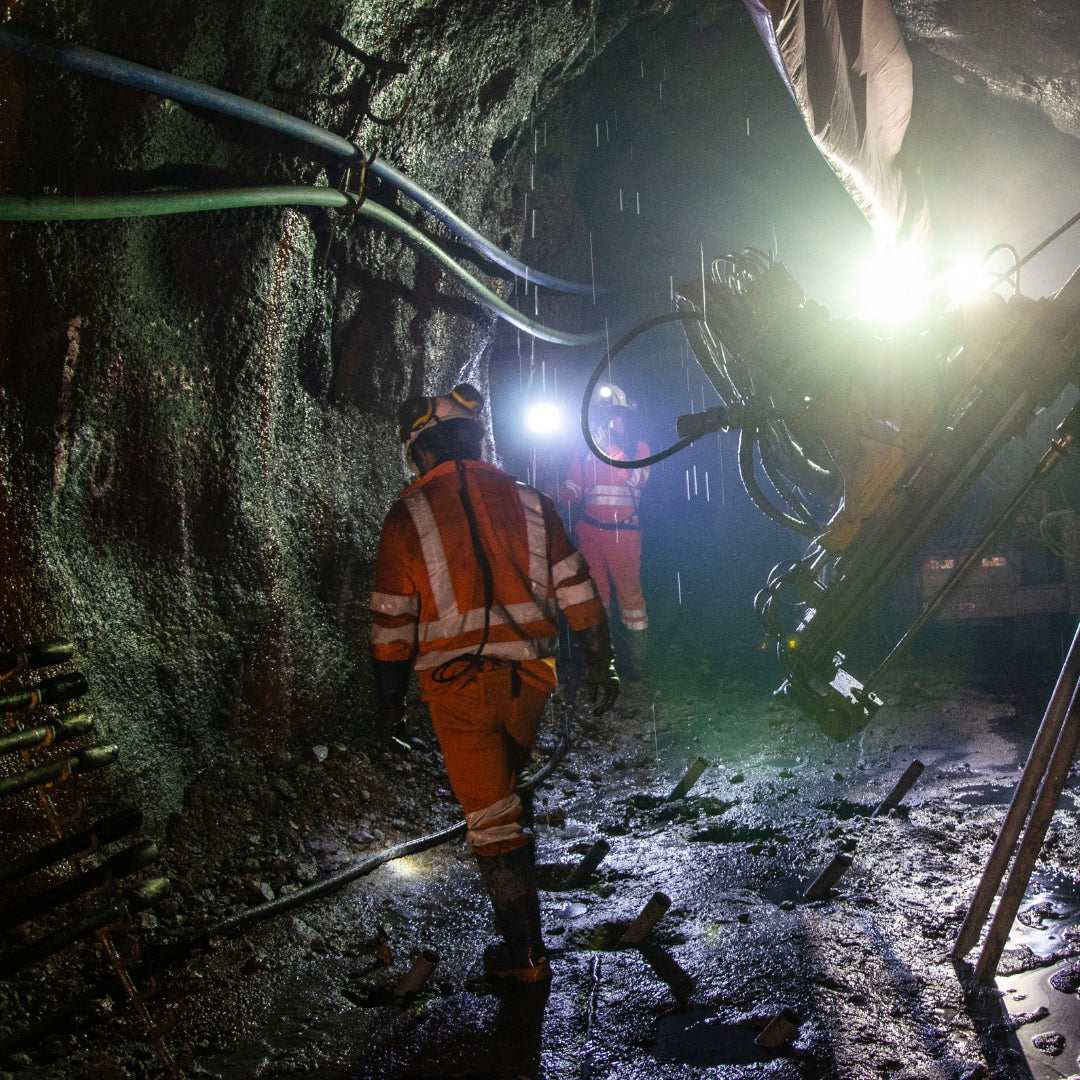
So many steps in the process leads to
Too Many Unknowns
Unless someone is there from the moment a crystal is extracted until it arrives in their hands, they can't know for sure.
A lot goes into preparing a crystal for the market. It has to be extracted from the ground. It needs to be cleaned. It's often cut and carved in an entirely different country than it was mined. They may then ship it to a wholesaler before it even arrives in a store.
Assuming we've even defined what ethical means, Conditions of all the workers in that chain would need to be verified as ethical for a crystal to bear that label. And that's often not possible to do.
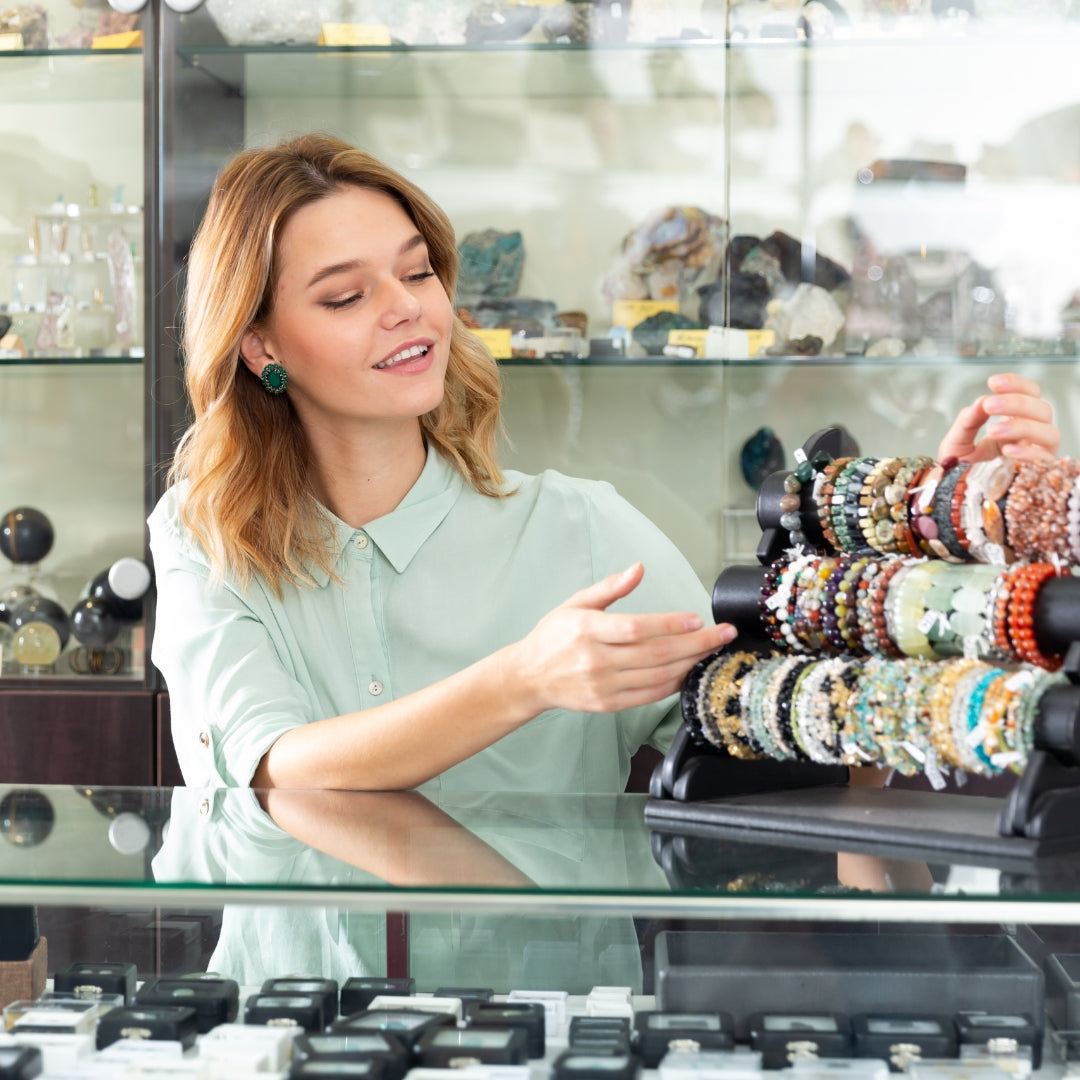
Are crystal shop owners
Lying about Ethical Sourcing?
This doesn't necessarily mean shop owners are lying when they say their crystals are ethically sourced.
Lying involves an intentional attempt at deception. The vast majority of crystals sellers ARE NOT trying to trick you. They're often misinformed by their suppliers, or don't realize what they don't know.
And some crystals ARE more ethically sourced than others. Some sellers will visit mines and factories to confirm good working conditions at that stage of the supply chain. Crystals may also have been mined by the shop owner, or someone they know.
Ultimately, ethical sourcing of crystals is a complex issue with no easy answer.
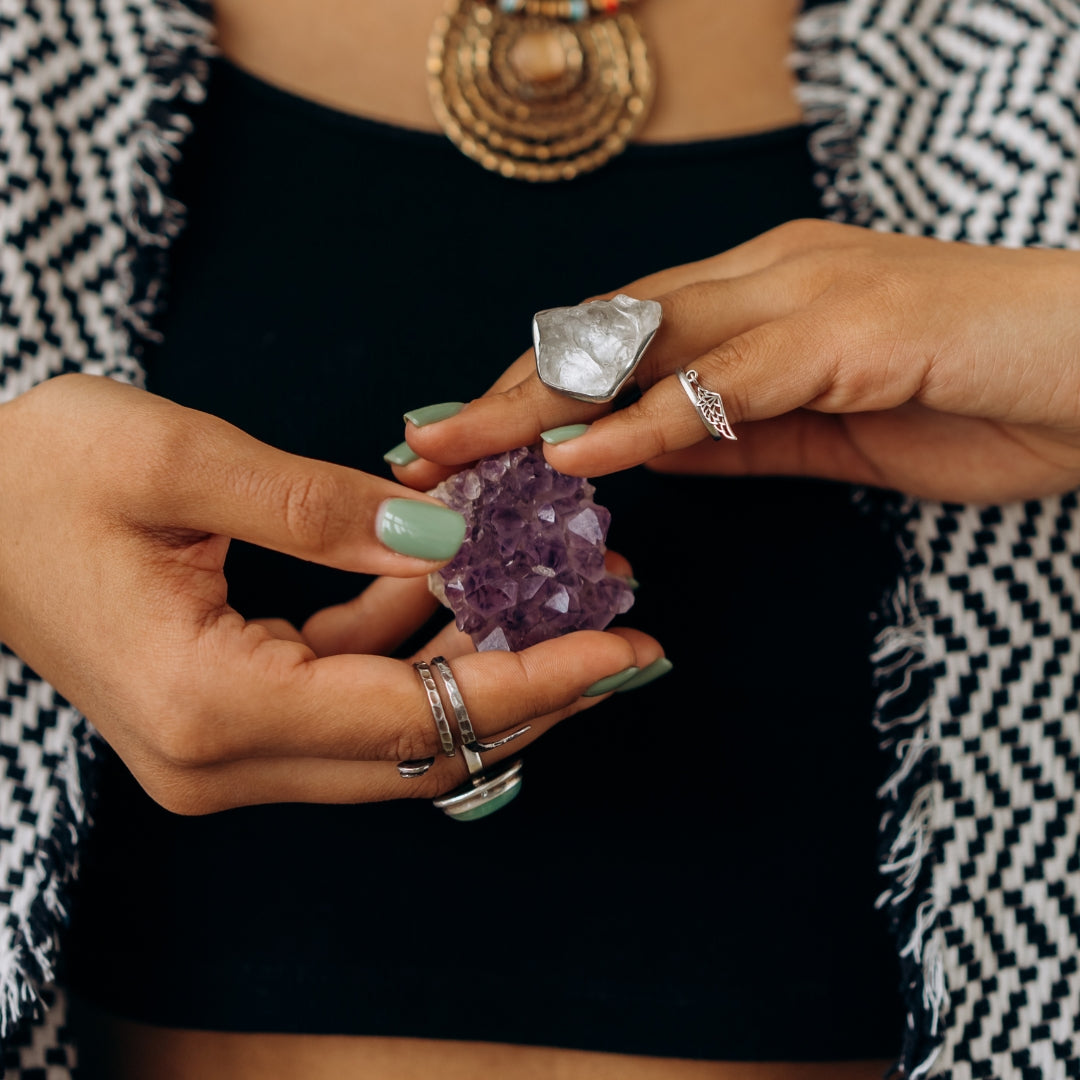
There's no easy answer, but
Here's what you can do
Determine what's most important to you when it comes to crystals, and go from there. Be kind, nonjudgmental, and honest with your answer to yourself.
If a seller claims their crystals are ethically sourced, don't be afraid to ask them what that means. If they refuse to answer or get defensive, it may be a sign to shop elsewhere.
Also, it's okay to purchase a piece you like, even if you don't know exactly where it comes from. Most crystals are a byproduct, meaning they're extracted as a bonus to the main material being mined, such as metals. This means any damage would have been done with or without your crystal being extracted.
We purchase and use items every single day that are far less ethically sourced than crystals. Maybe not the most comforting thought, but perspective is important.
We prefer to say our crystals are
Consciously Sourced
Instead of ethically sourced, we prefer to say our crystals are consciously sourced. This means we do our best to learn about the conditions behind a crystal and weigh the pros and cons before offering it to you.
Here are some things we do when sourcing our crystals:
Support small businesses. We purchase from small, family owned businesses whenever possible
Stick close to the source. We purchase as close to the mine as we can reasonably get. This reduces the amount of hands a crystal passes through, which reduces the risk of poor labor practices
Buying old stock. We scour estate sales, auction houses, and antique malls for unique pieces. We also purchase crystals from other collectors to save on resources
Giving crystals a second chance. We don't discard imperfect crystals, but instead offer them at a discount. We also sell crystal chips, which are a byproduct from the carving process and would otherwise be thrown out. This cuts back on waste and additional labor
Virtually touring factories and warehouses. We aren't able to fly to our suppliers, but we do virtual tours with them whenever possible to confirm safe labor practices
Doing it ourselves. We're in the process of learning to mine and tumble our own crystals. We look forward to offering you these in the future
Just ask us
We welcome questions! We just request if you ask about a specific crystal, please include its product link.

